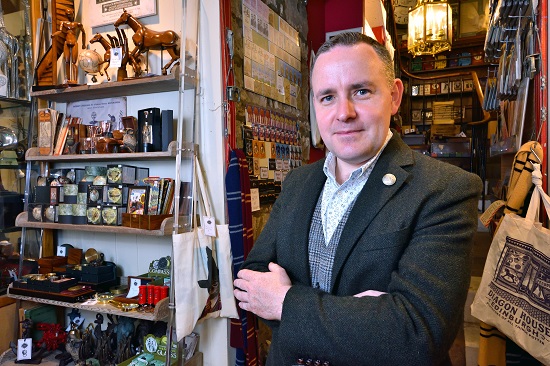FSB: Four in five Scottish smaller businesses contribute to local community

Andrew McRae
Four in five Scottish smaller businesses contribute to their local community or give to charity, according to new research from the Federation of Small Businesses (FSB).
In the new study – called ‘Small Business, Big Heart’ – the small business campaign group examines the contribution of smaller firms to both local jobs markets and to the success of their neighbourhoods.
In survey work conducted for the study it was found that 82 per cent of Scottish smaller businesses had contributed to local causes in the last three years, in comparison to 80 per cent across the UK as a whole.
The research also finds that a third of Scottish businesses (33 per cent) have contributed the skills of their enterprise to their local community, such as a local restaurant giving free cookery classes to low income families.
Two fifths (39 per cent) of FSB’s Scottish members say that they’ve donated their time to local communities, such as running local clubs or organising events.
Andrew McRae, FSB’s Scotland policy chair, said: “Anyone with their finger on the pulse of their community knows that smaller businesses play a pivotal role. In our new research, we try to measure this contribution and we find that local firms are punching well above their weight.
“This new report underlines why it is important that policy-makers give smaller firms the best chance of success. That’s why we’ve made the case for rates help for the smallest Scottish operators and for them to get a fair share of public contracts.”
Off the back of the findings, FSB is calling on the UK Government to deliver on its manifesto promise of a one-year National Insurance Contributions (NICs) holiday for firms that employ those from disadvantaged groups.
Mr McRae said: “Our research shows that smaller firms already take on huge numbers of people that face labour market challenges. We’re making the case for a little extra help so that they can achieve even more.”
On a UK-wide basis, the report finds that small employers are more likely to hire those from harder to reach groups than big corporations. The vast majority (78 per cent) employ an older worker, a third (34 per cent) have a member of staff with low levels of educational attainment, and a similar share (30 per cent) employ at least one person with a known disability or mental health condition.
FSB National Chairman Mike Cherry, said: “Those who are disadvantaged are already more likely to find work with a small firm than a big corporation. Back in 2017, the Conservatives promised that – were they elected – they would introduce a one-year NICs holiday for firms that take on those with a disability, mental health condition or who have been out of work for some time.
“We’ve been left asking: when will this promise be delivered? Two years later, it should be prioritised. We look forward to the Chancellor outlining exactly how the commitment will be taken forward in the upcoming Spring Statement. With the labour market tightening, EU migration down and skills shortages starting to bite, it’s more vital than ever that this incentive is made available.”





